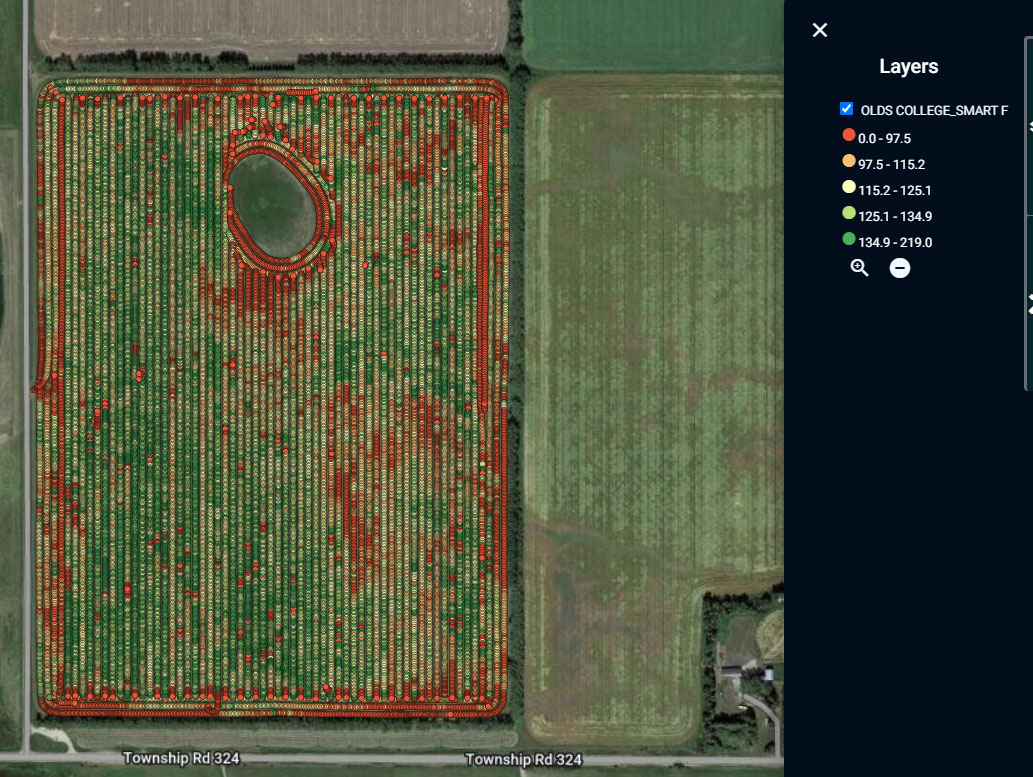
Olds College Centre for Innovation (OCCI), in partnership with TELUS, is researching the return on investment of variable rate fertilizer applications for producers. In order to estimate the impact of fertilizer adjustments, yield prediction based on NDVI or other spectrums is required.
The yield prediction curves will allow OCCI researchers to estimate economic impact on implementation of VRT based on level field variability, soil type, crop rotation, implementation cost and potential offset value of the CO2 (carbon dioxide) equivalent to the reduction of N2O (nitrous oxide) — resulting from more efficient use of fertilizer application.
The federal government has set a greenhouse gas emissions target for fertilizer by 2030. N2O is primarily emitted due to using fertilizer in crop production.
Project Goals
-
Develop dependable yield prediction curves based on historic NDVI (normalized difference vegetation index) values for barley, canola, wheat and peas at field level considering three main soil types in Western Canada (black, dark brown and brown soils).
Funders/Partners: TELUS